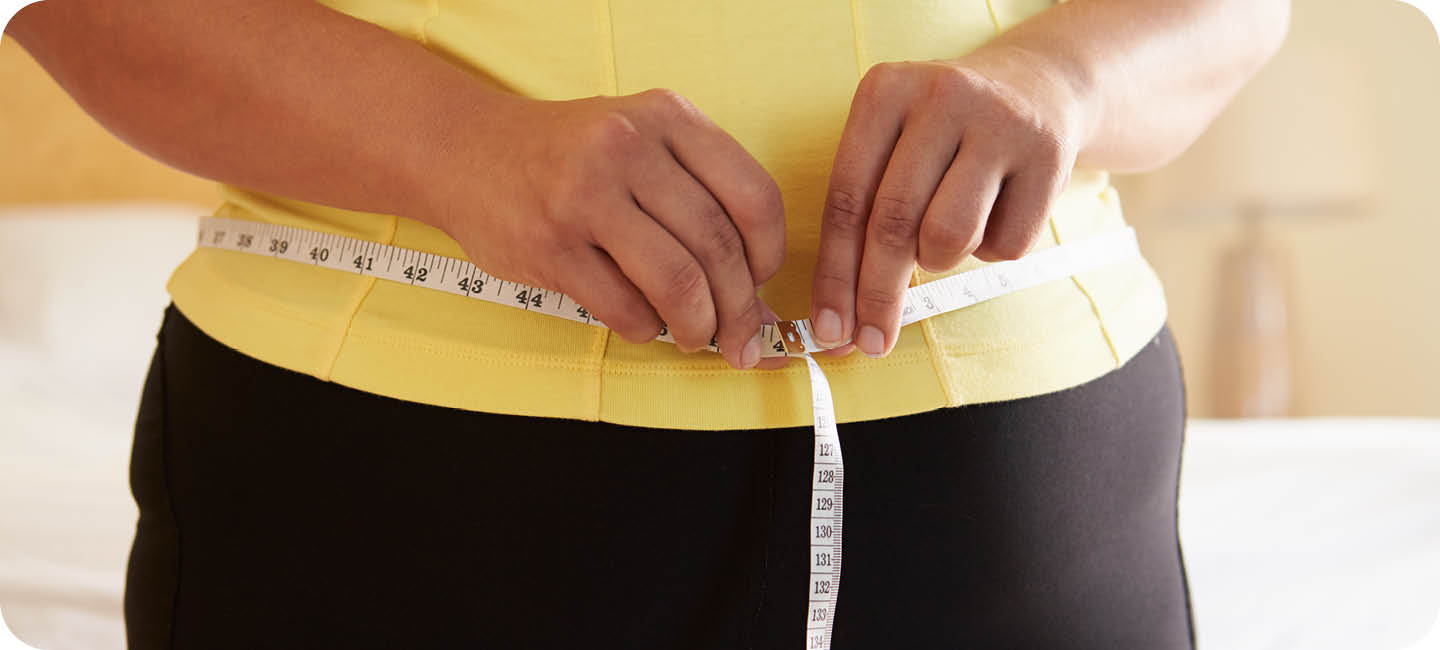Lighterlife’s scientists explains why weight gain during the menopause can occur.
As they get older, many women find themselves gradually putting on weight. And for those who attempt to diet, they often find that it’s much harder to get those pounds off than it may have otherwise been in the past. This is widely attributed to menopause – a biological process which all females go through at some point in their life. But is there any truth to these apparently inevitable weight management problems, and if there is, what can be done about it?
What is menopause?
Menopause is a completely natural process which happens to all females as they age. It refers to the hormonal changes that women go through around the time they stop being able to reproduce and it consists of a decline in production of both oestrogen and progesterone. Specifically, menopause is noted as the time when your menstrual cycle has ended and is affirmed after 12 months has passed with no menstrual period. Although the average age of menopause in the UK is 51, it can happen in your 40s or 50s, and rarely the process can even begin in your late 30’s.
In addition to the hormonal changes that result in the end of your periods, menopause is also accompanied by a range of physical symptoms including hot flushes, extreme tiredness, changes in hair and skin quality, heart palpitations, increased anxiety, night-time waking…the list goes on. Whilst none of these symptoms are welcomed, it’s important not to feel worried as this is a natural process and it will pass. The good news is that there are many effective treatments available, from lifestyle adjustments to hormone therapy which can help you manage these.
Whilst menopause is defined as 12 months without a menstrual period, women don’t suddenly develop these symptoms as their periods stop. The first thing to remember is that menopause doesn’t happen all at once, instead it happens over many years and in three different stages:
- Perimenopause
Several years before menopause, the ovaries gradually start producing lower levels of oestrogen which decrease over time and this process itself results in some of the early symptoms of menopause. These can differ vastly between women and there are over 40 documented symptoms that occur during the peri-menopause. - Menopause is when you’ve stopped producing the hormones that cause your menstrual period and have gone without a period for 12 months in a row. Once this has occurred, you enter the next phase which is
- Postmenopause and is the time after you’ve been without a menstrual period for 12 months. In this final stage, some menopausal symptoms, including hot flushes, get milder or go away altogether. However, it’s important to remember that females in the postmenopause stage of their life are at increased risk for osteoporosis and heart disease and so whilst you may gain your energy back and feel a new lease of life, it’s important to keep up with regular check-ups.
Is there an association between menopause and weight management?
Many women report gaining weight as they transition through menopause. Studies have shown that the average weight gain is 2.1 kg ± 5.1.1 Doesn’t necessarily seem like much, but what is of concern is that all of the weight gained is deposited in a central abdominal distribution (around the belly); one of the worst places to store wasted fat. This also happens in women who have a gynoid (hip and thigh) distribution of fat, or were relatively lean, prior to the menopause.
But why is this happening? Well, there are a range of reasons but firstly, some of it is out of control in terms of hormonal changes. Those that change during menopause are not just limited to our reproductive hormones and there are others that are also impacted; insulin and cortisol to name two. The impact of changes in all of these partially underpin some of the easy weight gain that is seen. For example, females become more insulin resistant during menopause and given that insulin helps to control blood sugars, we then see some of these extra calories converted into fat where they otherwise wouldn’t be. Cortisol, often referred to as the stress hormone, is another that is impacted to our detriment, and there is already good evidence which shows that irregularities in the regulation of this can contribute to gain. And finally, not forgetting that many of our hormones act centrally to adequately regulate our food intake and energy expenditure, and when this is out of kilter you may see resultant weight gain. And so, with everything apparently conspiring against us, you can see how women are more pre-disposed to weight gain during this time.
In addition, a recent paper has also shown that weight gain during menopause is also due to a reduction in spontaneous activity that happens during this time; nor surprising if you’re tired, anxious and have had night after night of disrupted sleep.
So, what do we do about it?
For women who are lean, advice about controlling energy intake and increasing physical activity may be all that is required to prevent weight gain. However, for those who are already overweight or obese, they tend to gain more weight as they approach menopause and so a reduction in body weight in the pre-menopause state, as well as careful attention to weight maintenance during menopausal years, can mitigate any further gains down the line.
Whilst for most it appears that the weight gain is modest and can be reduced with a conscious effort to limit energy intake and increase energy expenditure.
However, for women who are overweight or obese, rapid weight loss is best achieved with the help of a very low energy diet, like LighterLife’s TotalFast programme which must be followed by lifelong behaviour modification. And of course, aiming to be more active will not only help us improve our metabolic health (it does very little to help with weight loss), it can also help us feel more invigorated and help us maintain our lean muscle mass which has further benefits.
To start your LighterLife journey, find your personal Mentor by clicking here.




